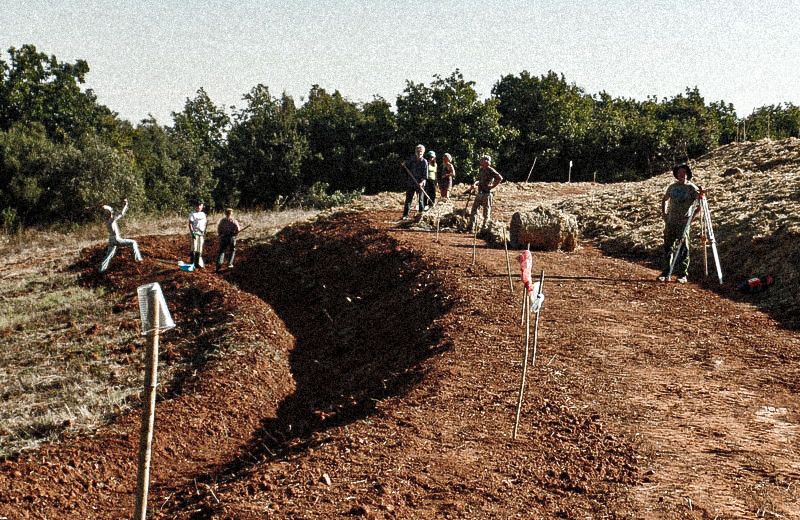TAMERA WATER RENTENTION LANDSCAPES
Alentejo, Portugal
Tamera Peace Research & Education Center
| Alentejo is the most arid region of Portugal, located in the south of the country, and identified as a region facing desertification caused by human failures in water and land use management. Tamera is a farm located in the Alentejo region that has created a water retention landscape (WRL) including a system of 29 lakes and retention terraces, swales and rotational grazing ponds. In areas with compacted soil, such as roadways, an additional effort is made to increase infiltration. The project uses principles of regenerative agriculture to manage the landscape holistically, and uses the existing topography to site the largest water retention feature, a large lake, which then descends to irrigate the landscape without using additional energy to pump water across the farm. The retention landscape is laid out following the direction of the prevailing wind, which increases the oxygen in the water to purify water, and filter water through water plants around the edges of the retention landscapes. Along the riverside, a forest of wetland species and fruit trees, including species that were used in traditional coppiced woodlots like chestnut, alder, ash and elder tree have been planted. These forest corridors support biodiversity, while cork oaks and olive trees planted in dry soils provide habitat for other species. Planting terraces with tree and shrub species offers further protection against landslides and floods caused by intense and increasing rainfall. The project has made Tamera water autonomous in a region facing increasing drought and high temperatures. |
2011
380 acres
813 feet above sea level

tags: water conservation, farmland restoration, regenerative agriculture, retention, resilience, social, ecological, engineering, institutional, self-initiated, design project, erosion, drought, extreme heat, landslide, watershed degradation, food security, landscape reclamation, arid, agribusiness, Europe, West Palearctic, Savanna/Tropical Grassland
References:
| Esteves, Ana Margarida. “Radical environmentalism and “Commoning”: synergies between ecosystem regeneration and social governance at Tamera Ecovillage, Portugal.” Antipode 49, no. 2 (2017): 357-376.
Dregger, Leila. “Water Is Life!.” Communities 143 (2009): 42. Alves, Filipe Migues Moreira, Andre Vizinho, Gil Pessanha Penha-Lopes and Ines Campos. "An economic analysis of rural climate change adaptation to droughts: the case of the Tamera Water Retention Landscape, Portugal." Lisbon: BASE, 2015. |
Links:
https://www.tamera.org/
https://climate-adapt.eea.europa.eu/metadata/case-studies/tamera-water-retention-landscape-to-restore-the-water-cycle-and-reduce-vulnerability-to-droughts#:~:text=Tamera%20has%20managed%20to%20counteract,swales%20and%20rotational%20grazing%20ponds.
https://www.planetalentejo.com/2019/environment/water/water-retention-landscape/
https://base-adaptation.eu/water-retention-landscape-restore-water-cycle-and-reduce-vulnerability-droughts-tamera-portugal